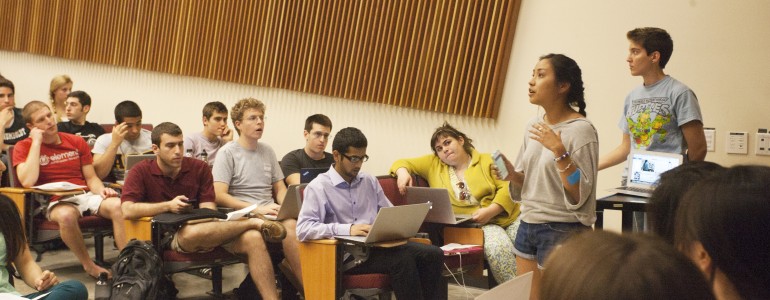ASUCD Resolution 20
Resolution 20:
The proposed resolution pits one student community against another. Unity is not served by remaining silent about our differences.
The proposed resolution singles out Israel while other major human rights abuses in dozens of countries are ignored. We agree, we will start with Israel and then divest from them all.
The proposed resolution ignores the complexity of this conflict. We do not want to give an answer for the conflict, just help remove a roadblock in that peace process.
The proposed resolution implies that ASUCD and associated students are all represented. No resolution will ever represent the entire student body.
The proposed resolution will marginalize the Jewish community in Davis. The campus climate should be sacrificed to empower greater social movements.
The proposed resolution is part of a national campaign organized by SJP National, but stemming from the global Boycott, DIVESTMENT and Sanctions (BDS). BDS is anti-dialogue and collaboration. Dialogue is not possible between an oppressor and the oppressed.
Omar Barghouti (one of the founders) does not support a two-state solution, rather a “Palestine next to Palestine.” Mr. Barghouti does not represent all of BDS.
BDS is anti peace negotiations. We opposed negotiations with the current government and their policies. If Israel meets the demands of the BDS movement then negotiations between the powers will be equal.
--
Each of the above statements and their counter-arguments were made last night at the Ethnic and Cultural Affairs Commission. Which one is right? The answer is both…kind of.
I’ve always had the acute awareness that if I wanted to, I could manipulate my words to make the average person believe a certain way. But never have I seen this idea of framing put to play with such force as I did around Resolution 20. And because there is nothing average about any of the people who attend these meetings, it is only fair to assume that each and every statement made, will hold legitimacy in some sense of the word. But because of this, we can sometimes lose touch of the inherently anti-Semitic nature of this resolution, whether it is intentional or not.
But to me, the most important question is and always has been why is a resolution like this even being discussed? A resolution that has one side claiming we are putting an end to some of the worst human rights violations the world has seen and another that denies this at all. A resolution that will never even come close to being representative of 50% of the student body regardless of what side wins. And a resolution that, if passed will mean much more to the Jewish, Israeli and Arab communities than an economic move of divestment.
The best answers I got for these questions was that our campus must suffer before good can be done. That changing the student body climate to empower a human rights movement is the most important thing we can do as people and that divesting is taking a neutral stance. To this I say divestment is neither a neutral, moral nor progressive movement. Its use of misinformation is a way to score PR victories against Israel. And by voting yes, we are legitimizes one group over another, undermining the safety of students telling you they feel threatened if this passes. It neither respects nor abides the obligation of this commission to represent minority rights at this school—and in this case the Jewish and Israeli community is very much the minority.
Still, last night the Ethnic and Cultural Affairs Commission voted 5-4-0 in favor of this resolution. And although, this could be seen as a defeat I believe it is a victory. Just last year, this commission not only authored the bill but voted 9-0-0 in favor of divestment. This marks the start of change. Is it that people are finally recognizing the underlying forces that drive this bill or that they have the same question that I do? There is no doubt in my mind that many of the people who are promoting divestment truly believe in the cause and are not anti-Israel just because they are pro-Palestine. But I think they are naïve if they do not see that the idea of divestment is rooted and always will come from hatred that surrounds the state of Israel.
These resolutions will never stand a chance as those that solely represent humanitarian obligations to the world as long as Israel is continually being spotlighted; especially when many of those in support of the bill are not Palestinian. Why not look at China’s discrimination against women, minorities and persons with disabilities? Or Sudan’s violence and discrimination against women? Or the unlawful killings, detention and widespread use of torture in Lebanon? It’s because any legislation that comes from a national campaign that is notoriously anti-Israel does not care about these other countries.
But again, I would like to return to the point that none of this matters. It is not our duty as a university to pit one groups suffering against another. We can’t oversimplify a war so that parties involved can be categorized as perpetrators and victims. This is a way to foster fueled hatred and divide the campus on an issue that no one will ever be unified on.
I urge everyone who has taken a side on this issue to really think about why it has surfaced. And if as a public school we should allow ourselves to take a stance on such a controversial issue that will greatly impact a minority on this campus.

